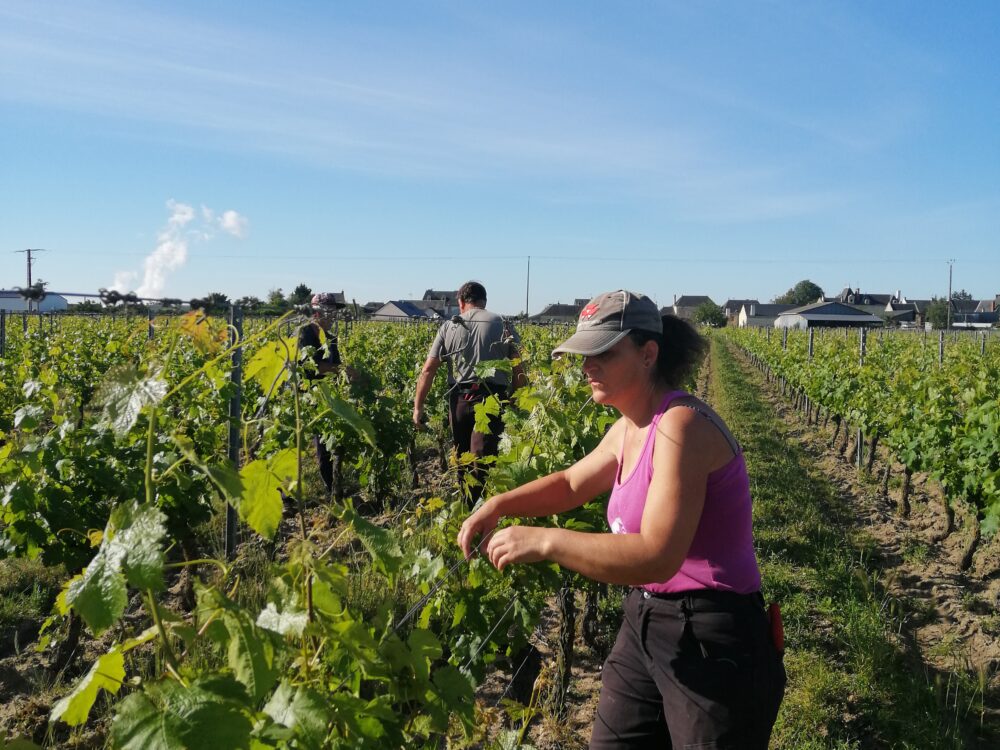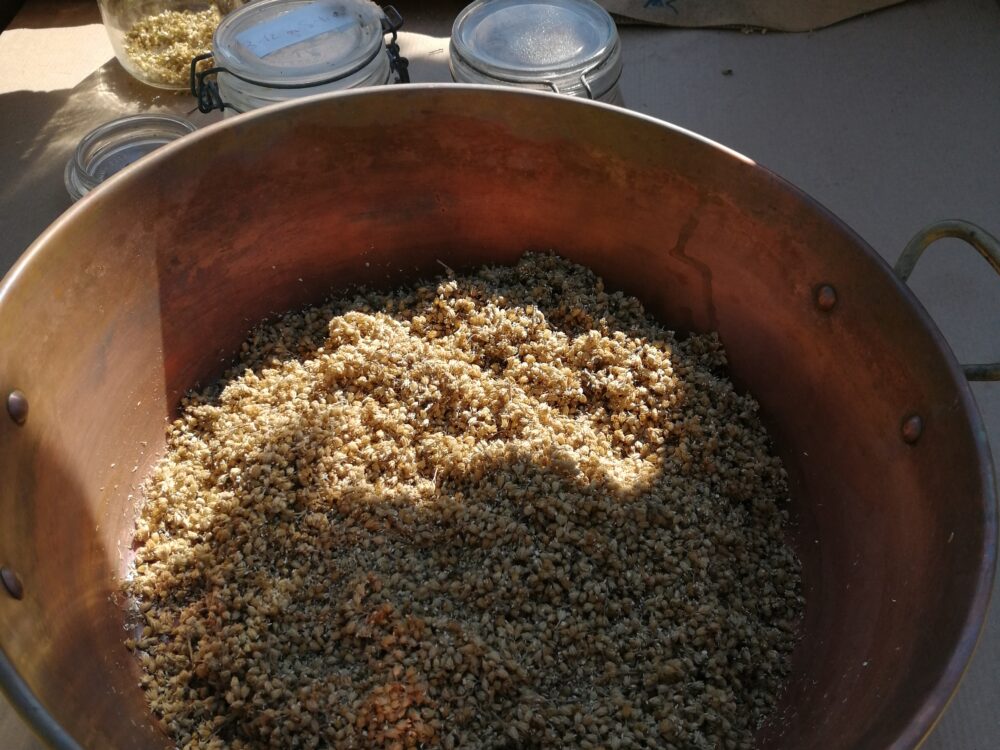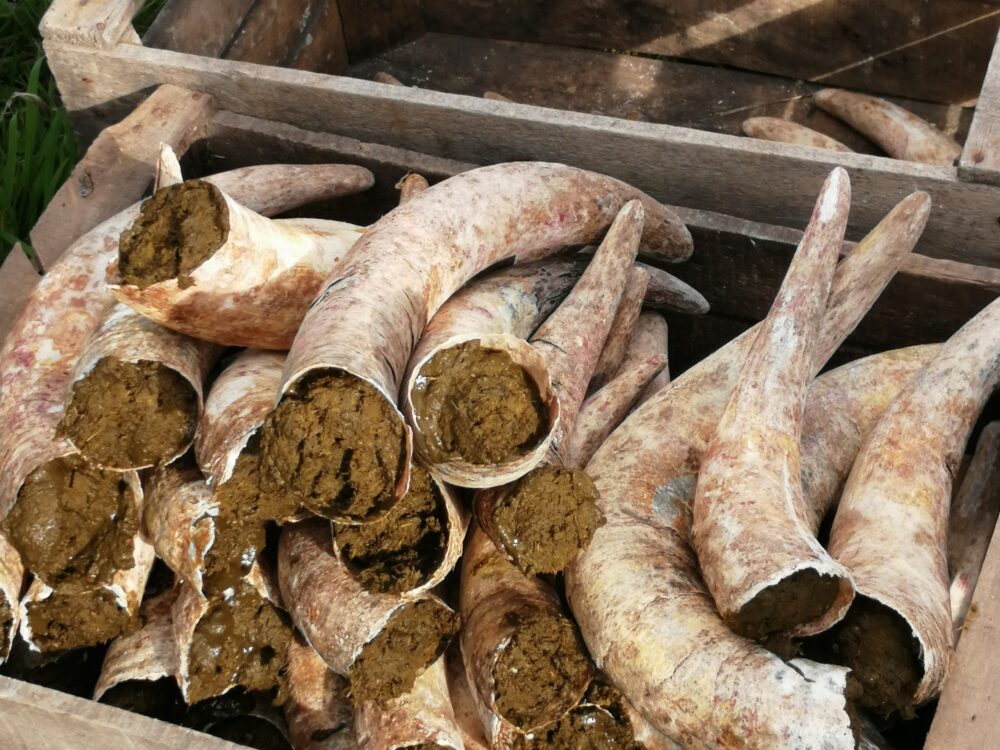
État saniTERRE by Anne Graindorge


In spring and summer, we survey the vines with the aim at maintaining their health.
Above all, by preserving auxiliary wildlife*, we help the vineyard produce the best fruit.
In spring, debudding is carried out: counter (or secondary) buds are removed. In this way we avoid too many bunches. These will be more evenly distributed over the vine.
Removing leaves in some cases can be useful. By reducing the foliage, we aerate the band of fruit and allow the sun to penetrate more easily, so obtaining optimal and homogeneous ripening of the grapes.
Also, some of the older leaves are removed to limit the appearance of fungi that like to nestle in dense vegetation because these molds are the likely cause of disease such as mildew and oidium.
We sometimes treat the vines to regulate their growth and promote fertilization.
We favour gentle methods as much as possible such as tisanes, concotions and plant infusions, some of which are harvested at the domaine.
We also protect the leaves and bunches by spraying them with minimal doses of copper spray (for prevention against mildew) and sulphur (for prevention against oidium).
We are part of an accompanying process in which we follow the evolution of the vegetation. The paths we take are different according to the needs of each parcel.
Reflection and experimentation are constantly present at the heart of the team and rigid systems have no place at the domaine. We encourage our vines to draw their full potential in their environment so that they feel good in their trunk and in their roots. Thus, our wines capture the finesse of their terroir from their very beginning. If necessary, desuckering can be carried out (removal of the unproductive growths from the base of the trunk to limit the risk of disease), thinning (removal of some of the bunches), lifting (raising the branches and containing them in a trellis so that the grapes get the optimum sunlight.)
*Insects that have a beneficial effect on the environment in that they effectively combat other plant killers












